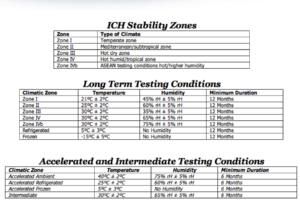Pharma interview questions for production jobs discussed in this post. Production department present in formulation plant as well as bulk(api) plant. Formulation production jobs offered for b pharmacy fresher’s. By keeping them in mind this information produced. Here we have not discussed any questions from HR point of view. These are all technical questions for production job aspirants.
Reputed pharma companies conduct a qualifying exam for selecting candidate for the interview. Qualifying exam tests your basic knowledge regarding the pharmacy subjects. It may include questions for any subject. It do not have particular pattern, it’s purely a pharma company choice. These question and answers helpful to you for succeeding the interview. Pharma interview questions for production jobs are given below. Click here to see the pharma interview exam for for freshers before selecting the interview.
Pharma interview questions
1. Define the tablet?
Ans) Tablet is a solid dosage form. It contains the Active pharmaceutical ingredient(API) along with the excipients.
2. Define API?
Ans) API, known as Active pharmaceutical Ingredient. First and important ingredient in any drug formulation. It is a biologically active component responsible for the drug effect.
3. What is excipient and give any two examples with their use?
Ans) Inactive or inert component of the drug formulation, helpful for improving the tablet characteristics.
Examples:
Diluents, useful for increasing the bulk volume of a tablet. Also used for improving the flow properties while compressing the tablet.
Lubricants, useful for improving the flow properties while compressing the tablet.
4. Give the examples for diluents and lubricants?
Ans) Diluents- Mannitol, sorbitol, starch, lactose, sucrose etc.
Lubricants – Magnesium stearate, calcium stearate, stearic acid etc.
5. Name the tablet preparation methods?
Ans) Wet granulation, Dry granulation, Direct compression.
6. Explain the wet granulation, dry granulation and direct compression?
Ans)
Wet granulation: It involves mixing, wet sieving, drying, dry screening and compression. API and excipients are mixed well, then binder solution/ granulation fluid added to form a wet mass, wet mass is screening through a suitable sieve, formed granules are dried. Dried granules are again screened through a sieve. It helps to break down the granule agglomerates to produce a compatible size for preparing the tablet. These same size granules blended and compressed.
Dry granulation: It involves mixing, slugging, screening and compression. API and Excipients are mixed well and particles are aggregated under high pressure for forming slugs. These slugs are screened to form uniform granules for compressing the tablets.
Direct compression: In this method, blend of API and Excipients are directly compressed to form tablets without changing physical nature of material itself.
Also read: Clinical trials overview
7. Name any three tablet processing problems and explain it?
Ans) Mottling, Capping and lamination.
Mottling- unequal colour distribution of a tablet.
Capping- Partial or complete separation of a tablet top or bottom crowns.
Lamination- Separation of tablets into two or more layers.
8. What is the difference between picking and sticking?
Ans) Picking- Because of adhesion to the punch faces, Localised portion missing on the surface of the tablet.
Sticking- Adhesion of tablet localised portion to the punch faces resulting in rough and dull appearance.
9. Define capsule and how many types of capsules are available?
Ans) It is a solid dosage form. It contains API and excipients enclosed in a water soluble shell made up of gelatin. Two types of capsules are available. Hard gelatin and soft Gelatin capsules.
10 .Explain about hard gelatin capsules?
Ans) It contains two parts called body and cap. Body, a long narrow section. Cap, a smaller wide portion, it fixes over the body.
11) What is the biggest and smallest capsule size?
Ans) Biggest capsule size -000, Smallest capsule size – 5.
12) Define parenterals?
Ans) Sterile dosage forms administered by injections thorough one more layers of the skin.
13) Explain about Water For Injection(WFI)?
Ans) Purified water without any pyrogen, prepared by distillation or reverse osmosis.
14) What is pyrogen?
Ans) Metabolic products of microorganisms. Produced from living or dead microorganisms.
15) Difference between water for injection(WFI) and sterile water for injection(SWFI)?
Ans) WFI – Purified water without any pyrogen
SWFI – Purified and sterile water without any pyrogen
16) Difference between ampule and vial?
Ans) Ampule- simple dose unit. Vial- Multiple dose unit.
17) Use of additives in the parenteral formulations?
Ans) Additives used for increasing the stability of solutions.
18) Explain about different types of additives with examples?
Ans) Anti oxidants – Used for preventing the auto oxidation of medicament/drug in the formulation.
e.g: Ascorbic acid , Butylated Hydroxy Anisole(BHA), Butylated Hydroxy Toulene(BHT)
Synergists: Enhances the activity of anti oxidants.
e.g: Citric acid, Citarconic acid, Phosphoric acid, Tartaric acid etc.
Preservatives- Helps to prevent the microbial growth in the formulation.
e.g: Benzalkonium chloride, phenyl mercuric acetate, Thiomersol.
19) Give the examples of tonicity modifiers?
Ans) Sodium chloride , Dextrose.
20) Which colours used in parenteral formulations?
Ans) Colours will not be used in the parenteral formulations.
For more pharma interview questions for different pharma jobs, follow this website share this information with your friends. Comment your opinion below.
